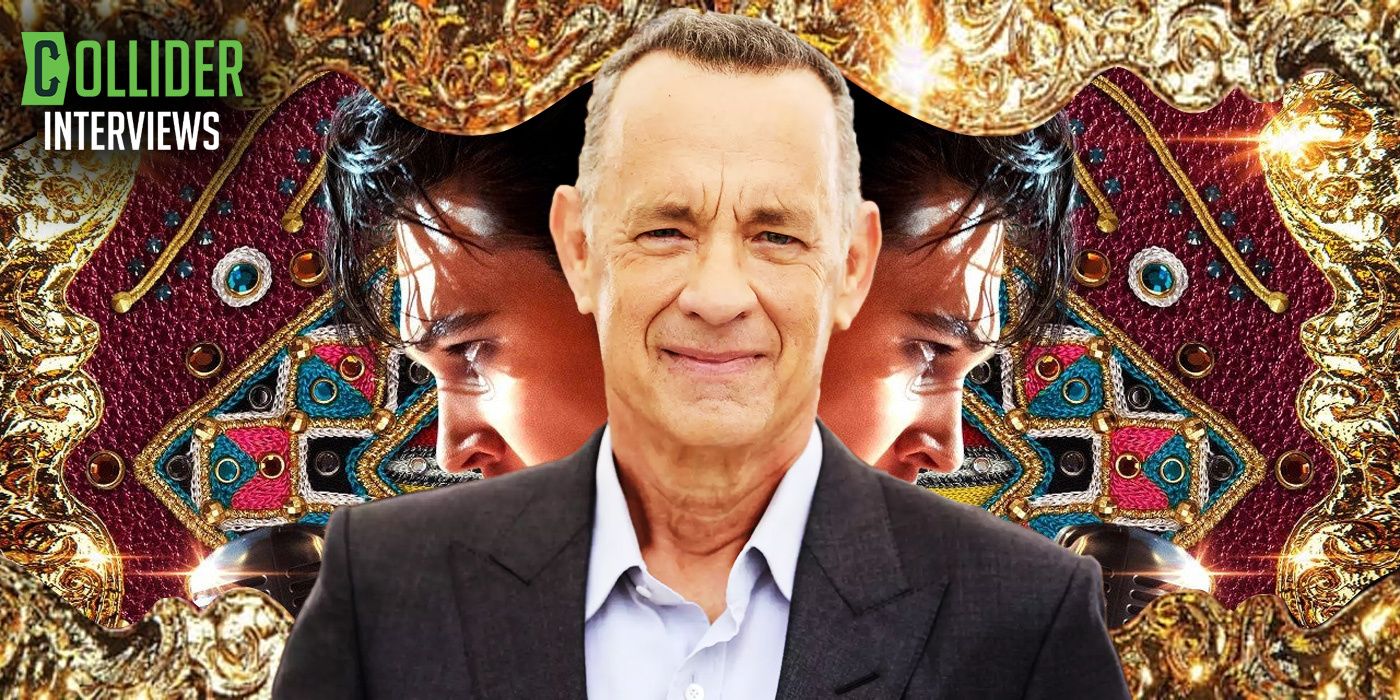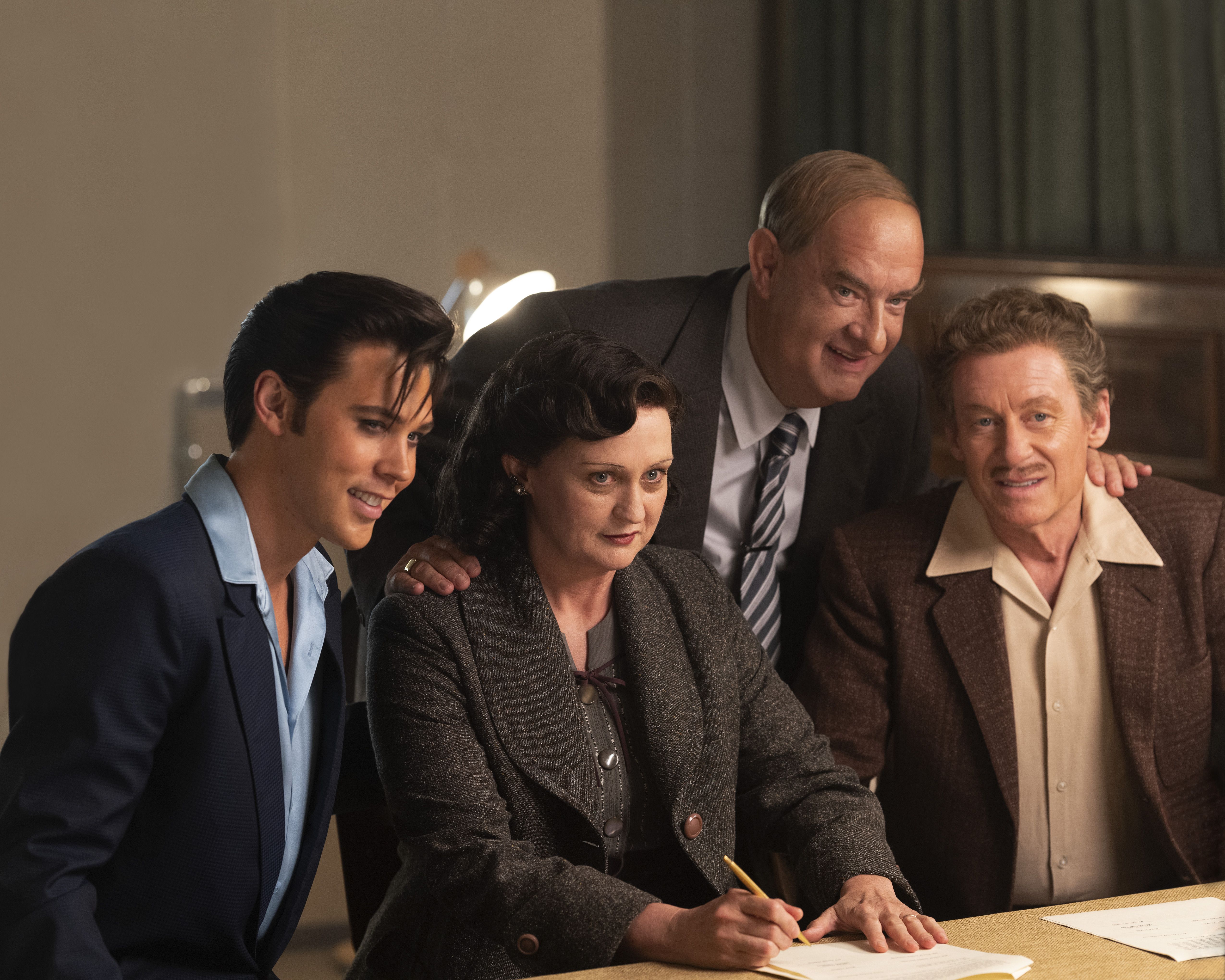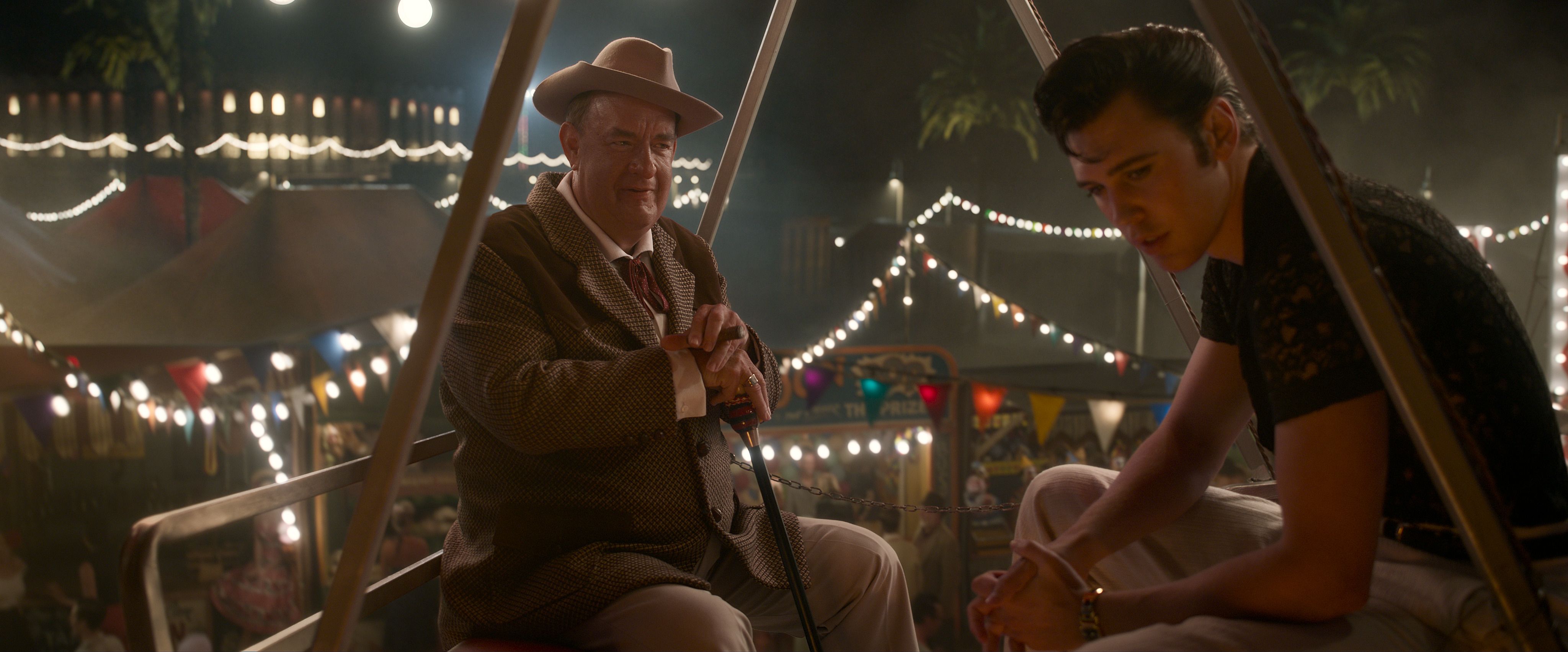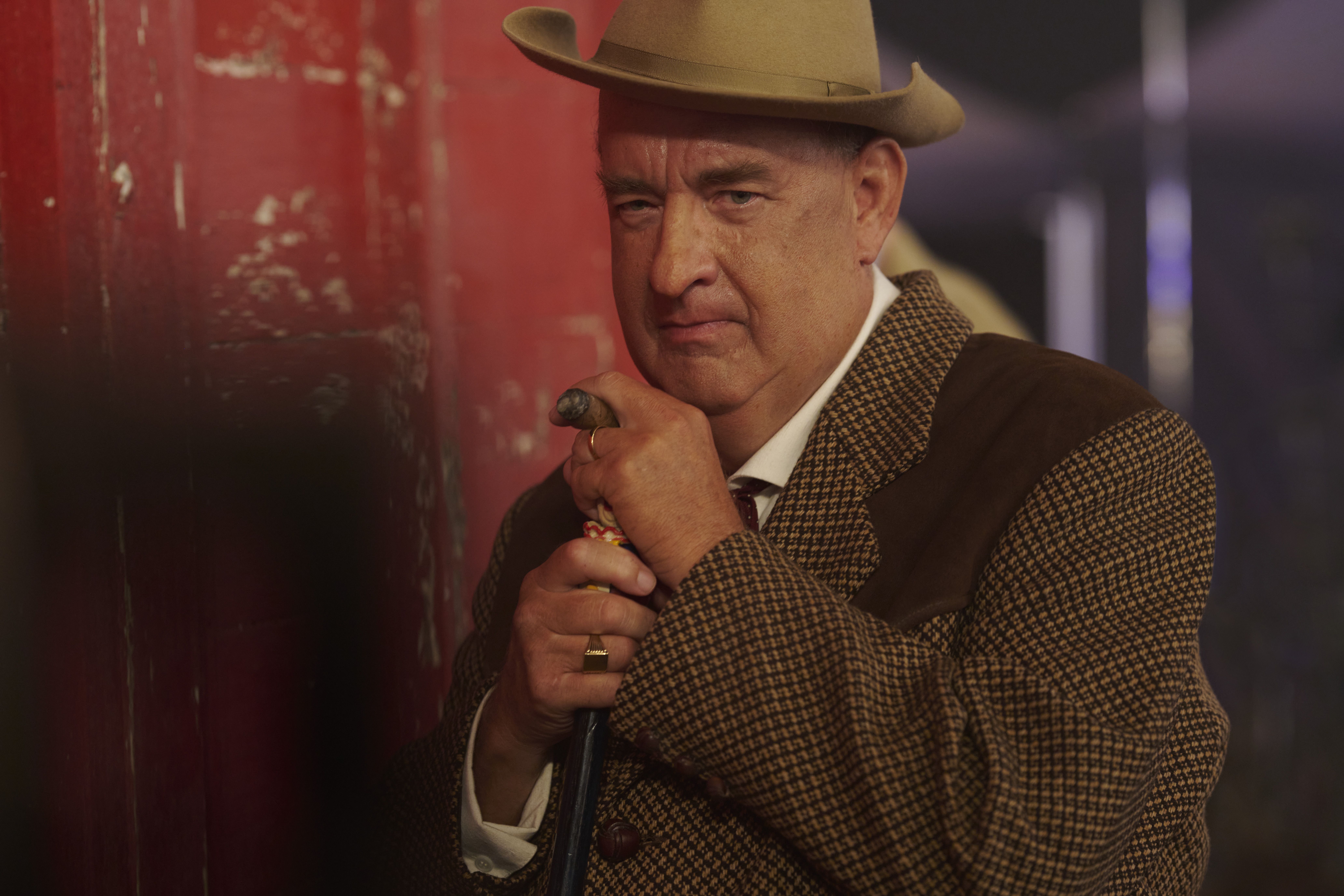With writer-director Baz Luhrmann’s Elvis opening in theaters this weekend around the world, I recently got to speak with Tom Hanks about playing Colonel Tom Parker in the biopic. During the interview, Hanks talked about the way Parker was a promoter and not a manager, why Elvis never fired him, and how he prepares for a really emotional scene. In addition, he revealed his dream project, which would be about Dean Reed, who was an American actor and singer that decided to become a communist behind the Iron Curtain. It’s a wild story.
As you can see in the trailers, Elvis is about the complicated relationship between Colonel Tom Parker (Hanks) and Elvis Presley (Austin Butler). The film tells Elvis’ story from Parker’s point of view, and it spans over two decades and includes Presley’s rise to fame against the backdrop of the evolving cultural landscape and loss of innocence in America.
Butler is superb in the role and actually sings Presley’s early songs in the film. His performance alone is reason to see the film. Elvis also stars Helen Thomson as Elvis’s mother, Gladys, Richard Roxburgh as Elvis’s father, Vernon, Olivia DeJonge as Priscilla Presley, Luke Bracey as Jerry Schilling, Natasha Bassett as Dixie Locke, David Wenham as Hank Snow, Kelvin Harrison Jr. as B.B. King, Xavier Samuel as Scotty Moore, and Kodi Smit-McPhee as Jimmie Rodgers Snow. To play additional iconic musical artists in the film, Luhrmann cast singer/songwriter Yola as Sister Rosetta Tharpe, model Alton Mason as Little Richard, Gary Clark Jr. as Arthur Crudup, and artist Shonka Dukureh as Willie Mae “Big Mama” Thornton.
Watch what Tom Hanks had to say in the player above, or you can read our conversation below.
COLLIDER: I want to start with congratulations on the movie. I thought you guys did such a great job. I am curious though, I like throwing a curve ball at the beginning, something, hopefully you haven't been asked. As a producer/director/actor, if you could get the financing to make anything you want, what would you make and why?
TOM HANKS: Wow. There's a number of thematic elements there that... All right. I'll tell you specifically. I tried to put together, and it was tricky, this story of… There was a guy named Dean Reed. Dean Reed was an incredibly handsome guy. I mean like ridiculously handsome guy who also happened to be a third-rate singer and a second-rate actor who just happened to become very, very, very, very famous for a record in Chile. And when he went down there, he was celebrated as though he himself was Elvis Presley. And because he had these socialist inclinations, he went off and became a superstar as an American rockstar who decided to become a communist behind the Iron Curtain. And I have asked people from Russia and Poland and said, "Are you familiar with the American singer, actor by the name of Dean Reed?" And they'll say, "Oh yeah, Dean Reed. He was huge. He was the American that we all knew." And I would love to make a movie about that guy. Hard to do.
I have never heard that story.
HANKS: Check it out.
And I'm now fascinated.
HANKS: There's a YouTube, one was named Comrade Rockstar and another movie called Red Elvis. Check him out. It'll blow you out of your mind.
Jumping into why I get to talk to you….The thing that's interesting about Tom, is that he was really good for Elvis at the beginning. And then I guess it, obviously, became something else. But could you talk about that relationship at the beginning, he was instrumental merchandising, getting Elvis off the ground, thinking big.
HANKS: He was a promoter and not a manager. He did not have an artistic thought in his body. He didn't care what Elvis sang on stage. He cared about the reaction of the audience. He had never seen that before. Elvis could sing whatever he wanted. He literally never made any artistic suggestion to Elvis. He says, "I said he should sing this kind of thing." I don't know if that's true or not. And that is the yin and the yang to his diabolical genius status. He did make him by 1961 a talent that would reign eternally, probably a career that could be of import for 20 years. What he didn't do later on in the 60's and to a degree in the 70's was go to this wickedly, incredibly singular talent, worthy of altering the zeitgeist in the mid-1950s.
He never went to Elvis and said, "What would you like to do? What dreams do you have? What idea?" I mean, even the 1968 comeback special, he said, "Hey, great. We can get Singer sewing machines as long as you sing a song about Christmas, that's all we need. We'll make a lot of money." That's the thought that he had. And there's the fault that I think also has to land in both of them because Elvis could have said no. He could have said, I mean, Priscilla herself told me he could have said no to those movies. But here was a guy that took him from the worst rental apartment in a bad part of town in Memphis and put him in Graceland, which is the mansion that's right there. He did not know how to say no to someone who had already made all of his dreams come true.
When watching the movie, you think about all the what ifs. I love your work so much. What is it like for you when you are getting ready to step on set for say a big emotional scene on a Monday, can you explain to me, is it weeks in advance you're thinking about that big scene? How are you preparing for it?
HANKS: It's a beast, but you are aware of when that scene is coming. And if it's on day 46 of a 68-day shooting schedule, there is a piece of you that is preparing for day 46 every day from one through 45. You are aware that this thing is going to be coming up and you corral all the emotional sheep slowly over the course of it. But what you're describing there is literally something that happens on movies. Monday at 10:00, you're going to be on set and you're going to be committing to film forever the emotional spine of the movie. There's no substitute for going there. But if you have gotten over the fear of making the movie in the first place, which you do I think in the first three days of the movie. The first three days of the movies are chaos.
You think you're going to get fired and nothing works. And you hate the director the first day and he's okay the second. By the third day, you're in love with him. Anything can happen during those first three days. Then after that, you just have to have this faith in your own individual process and the power of the script. And you just, you always think about it. You meditate on or visualize, or you constantly... It's like you have a record, you have an album by your favorite artist. And when you first buy it, you love listening to it. And by the 418th time you've listened to it, you know every pause, every word, every lyric, and you have an emotional connection, an image for every one of those songs, every one of the emotional beats that's on the record. And that's what you do in order to get there on Monday at 10:00.
On that note I got to go. I'm just going to say, sir, it is always a pleasure to talk with you. Thank you so much for your work.
HANKS: Great. Thank you.




